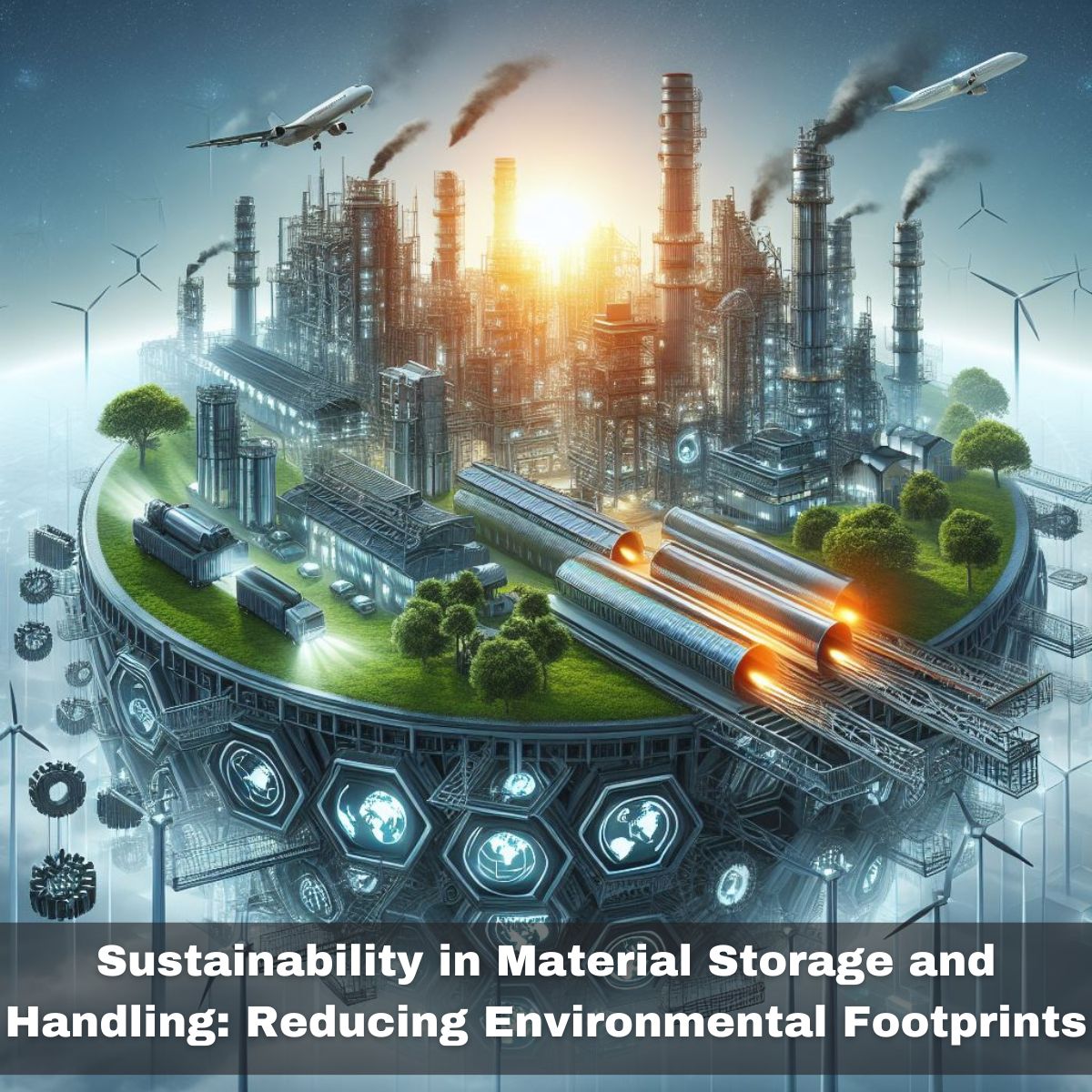
Sustainability in Material Storage and Handling: Reducing Environmental Footprints
15-February-2024
Unveiling the Hidden Impact: Rethinking Sustainability in Material Storage and Handling
While sustainability discussions often focus on energy efficiency and recycling, one crucial aspect remains overlooked: material storage and handling. Surprisingly, inefficient practices in this area contribute significantly to environmental degradation, leading to excessive waste and heightened energy consumption. In this blog post, we unveil the importance of sustainable material storage and handling, exploring practical strategies and innovative solutions. Join us in delving into how subtle changes in our approach can wield a substantial impact on our planet's future.
I. The Importance of Sustainable Material Storage and Handling
In today's world, sustainability is no longer just a buzzword; it has become an imperative. As industries strive to reduce their carbon footprint and minimize waste, the importance of sustainable material storage and handling cannot be overstated. By implementing environmentally-friendly practices in these areas, businesses can significantly contribute to the global effort of preserving our planet for future generations.
Efficient Inventory Management:Choice of Packaging Materials:
Sustainable Transportation Methods:
Financial and Environmental Benefits:
II. Strategies for Sustainable Material Storage in Metal Forming
In the world of metal forming, sustainable material storage is a crucial aspect that often goes overlooked. However, by implementing innovative strategies, we can not only reduce waste but also optimize efficiency and minimize environmental impact. Key strategies include:
Vertical Storage Systems:Organization and Accessibility:
Eco-Friendly Practices:
By implementing these strategies, businesses in metal forming can achieve multiple benefits simultaneously:
Optimized space utilization reduces waste generation.
Easy access to stored materials enhances overall operational efficiency.
Recyclable packaging options contribute to environmental goals.
Energy-efficient lighting choices align with broader sustainability objectives.
The Future is Vertical:
III. Sustainable Handling Techniques in Metal Forming
When it comes to sustainable handling techniques in metal forming, innovation and creativity play a crucial role. One such technique that has been gaining traction is the use of advanced robotics in the manufacturing process.
Advanced Robotics:Programmed Tasks:
Optimized Movements:
Artificial Intelligence Integration:
IV. Training Employees on Sustainable Practices
In today's rapidly changing world, it is crucial for businesses to prioritize sustainable practices. One of the most effective ways to achieve this is by training employees on sustainable practices. Here's how:
Comprehensive Training Programs:Focus Areas of Training:
Industry-Specific Sustainability Challenges:
Team Collaboration for Common Goals:
Engagement in Environmentally Conscious Market:
A Greener Tomorrow Starts Today
Sustainability in material storage and handling isn't just a trend, it's an imperative. From efficient inventory management to eco-packaging and renewable energy, we've explored ways businesses can shrink their footprint and boost their bottom line.
But the impact goes beyond profits. Our planet's resources are limited, and it's our responsibility to future generations to protect them. The choices we make today in managing materials shape tomorrow's reality.
What legacy will your business leave? Will it be remembered for wastefulness or sustainability? Every step, however small, counts. Let's work together to make sustainable practices the norm, not the exception.
Thank you for joining us! Let's continue this journey towards a greener future, one responsible choice at a time.
Our Address
Plot No. 45, Vasai Municipal Industrial Estate, Near Dattani Shopping Complex, Umella Phatak,Vasai West, District Palghar 401 207, Maharashtra, India.
Email Address


